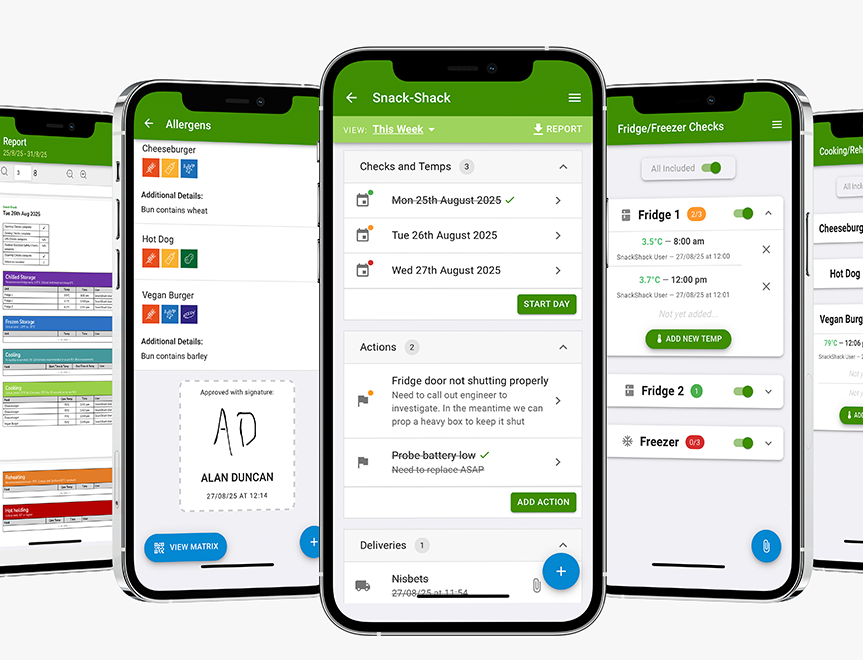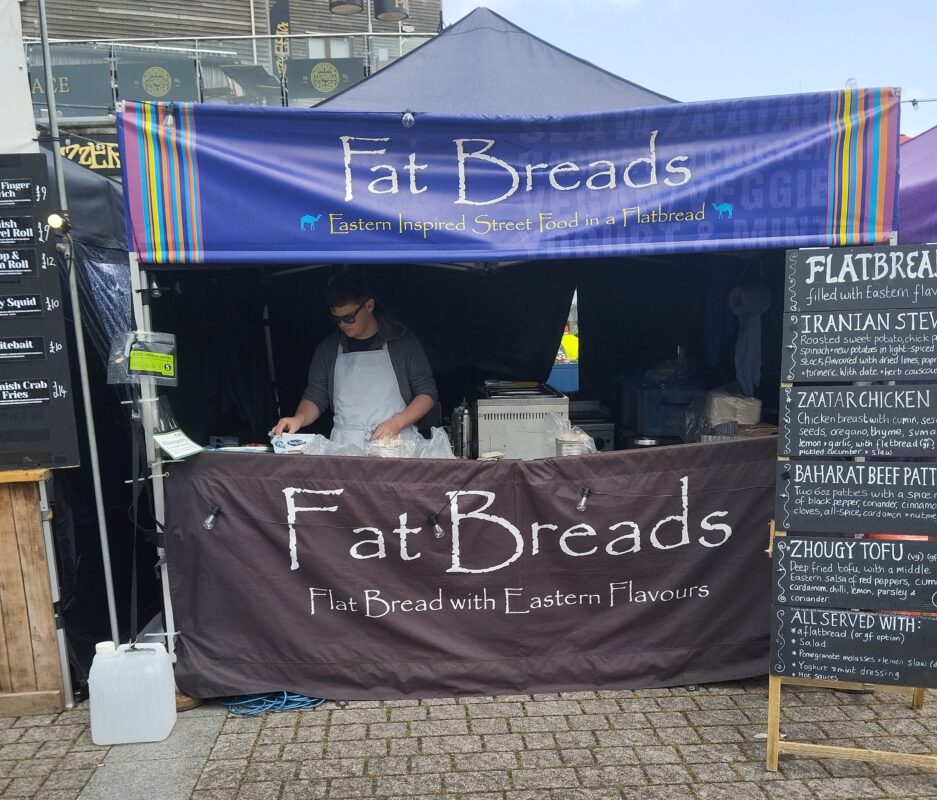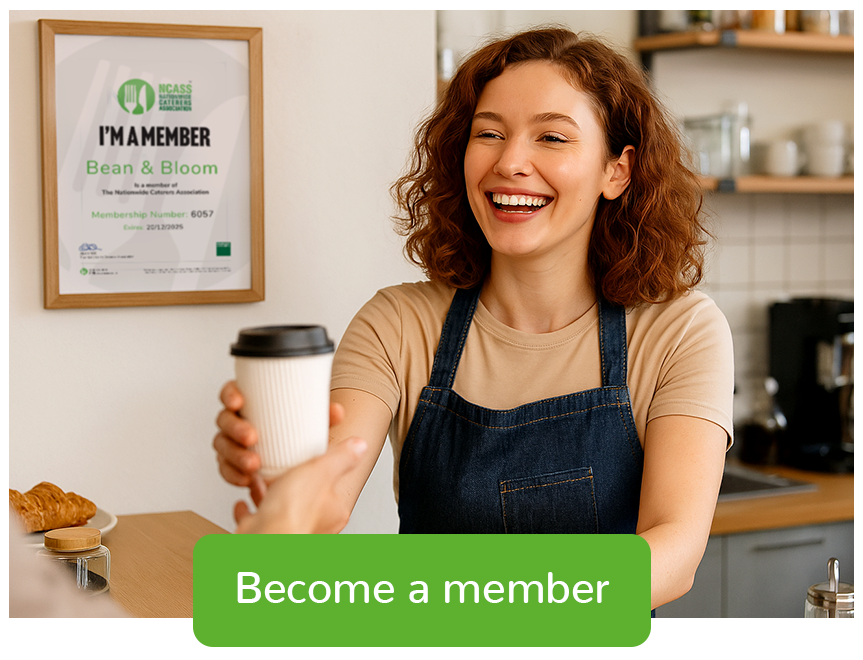Following a stint as a plumber that he quickly got bored of, Martin Marsh decided to pursue cooking courses at his local college. He recalls that back then he “couldn’t even cook an omelette”, but with a bit of training found his way and was soon working in the kitchen at a London hotel, feeding hungry guests.
This formed the basis of his exposure to working in hospitality, but wasn’t enough at the time and never one to sit still, Martin decided to head to university to pursue a passion in music. After a couple of years of this, catering was calling once again. But this time it made far more of an impression: “I worked with a little French bistro for three years and I really enjoyed it, it expanded my perception of catering and what it can be.”
Leapfrogging from this experience, Martin found himself working at a high end restaurant where the vigorous demands of the job began to take their toll. He recalls how he’d have to “start at half six in the morning and not finish until eleven – we’d have to run to get the last train home. It was a nightmare. I left there and felt I’d never work in hospitality again.”
Unfortunately this is all too common a tale of the unforgiving long and hard hours that come without relative reward as you slowly run yourself into the ground. Thankfully, the rigours of that experience did not completely turn Martin away from hospitality and after a bit of a tumultuous period, he came across some grants he could access that were used to purchase equipment to set himself up with his own street food business – and thus Fatbreads was born.
Initially proceeding with the venture part time, Martin could see legs in the business and began putting more time and effort into it. He quickly saw it was “getting bigger and bigger and it was a bit of a surprise to me really, because I didn’t want much out of it. All I really wanted out of it was for it to give me a few months off during the winter.”
Martin makes no meal about admitting he didn’t set up the business with a view to making lots of money out of it, and that he’s something of a risk taker who enjoys rolling the dice in life and seeing what happens. Street food is undoubtedly home to many who champion a similar attitude, and it can reward that well.
After all, as much as you may have it all planned out, there are so many variables and uncertainties in independent hospitality that trading is always something of a risk. Of course it can be mitigated to degree, but as Martin recalls when trading at an early event, he faced 40mph winds and biblical rains, which it’s fair to say are less than ideal conditions for anyone to trade in.
Martin sometimes looks at things as an “educated risk” in relation to whether it’s worth trading at an event or not. As we spoke, Fatbreads has been in business for over ten years, so clearly these risks have come off more often than not. Achieving that degree of longevity in independent hospitality is no mean feat at all and is a testament to Martin’s commitment as much as his catering ability and risk-taking knack.
Naturally, you learn as you go in catering, just as we do in life. One thing that’s synonymous with street food, is flexibility. Times change and so too does what works for your business – Martin has become more conscious about the events that he trades at and the proximity of them, so if he has stock left over from an event, it’s still good to go for the next event taking place the following day, for example.
Crucially it’s about making something work for you, and in a sector that encourages a myriad of methods, you often have to find your own way. This is exactly what Martin has done with Fatbreads. He touts organisation as a key pillar to staying on top of running the business, boiling this down to simple metrics such as employing the use of spreadsheets to balance incoming and outgoings. There is no substitute for simplicity in business and the better realistic understanding you have of how you / your business are doing, the more informed decisions you are going to make and the greater chance you will have of succeeding.
Hospitality is a people-centric business, another element Martin fully embraces. He enjoys speaking with other caterers and has offered his assistance, positioning himself as an ear and source of advice for others that seek it, passing down the lessons he’s picked up during his tenure in catering. The camaraderie within the sector acts to benefit all involved – crucially as Martin points out “it’s no good running a business if you’re not making any money” and there is always more to be learnt. Even at the beginning of the business, when naturally things can be a struggle, Martin retained a pragmatic approach – recognising that even though he wasn’t making money, crucially he wasn’t losing any.
Reflecting on having been in business for ten years with Fatbreads, Martin unsurprisingly admits he had not thought of achieving this degree of longevity, and that he “didn’t know what to expect” at the outset. He knew the vehicle for the business was always going to be bread, arising out of a disillusionment with the majority of poor imitation bread based foods he’d see on sale. Poor quality buns in burgers for example, where all the focus is on the patty and the bread was considered almost secondary, or sandwich shops with big stodgy pieces of bread and poor or little filling.
This makes up the ‘Fat’ acronym in Fatbreads – standing for ‘fresh and tasty’.
Having enjoyed Middle Eastern food, Martin found the research he’d done around the potential bread-oriented products he wanted to sell kept leading him to Middle Eastern foods and flavours. When experimenting with items and ideas himself, it became a bit of theme that he’d find out afterwards a certain creation already existed in Middle Eastern cuisine, a phenomenon he describes as “being in-tune with the cuisine.”
It just made sense – so the direction being ‘Middle Eastern inspired’ began and Martin embarked on the journey that’s taken the business to where it is today: “My whole ethos is I put a lot of time and effort in. You get a lot of flavour combinations with the cuisine, I explain to people that with Middle Eastern food it’s about flavours, rather than a lot of spices.” One thing he’s identified as being a real advantage to his humble offering, is the accessibility. When asked about a target audience, Martin expresses pride at not having one, that his food is not ‘restrictive’ in that sense, that his customers range from and regularly include teenagers to older people, and a wide spectrum within that.
Feeding a whole host of NHS staff during Covid was proof of this, where it was obvious so many people, from all different backgrounds and demographics were happy to tuck into some Fatbreads. This helped Martin look at casting a wider net, which is something he’s found success with more recently having ventured into wedding catering. The obvious upside of catering a wedding is the mitigated risk it provides, that you know exactly how many heads there will be, where and when you need to be and of course there is great potential for growth through word of mouth in the wedding circuit – something Martin has experienced.
Operating in Middle Eastern inspired cuisine also fuels one of the most beautiful aspects food can provide – broadening horizons and introducing people to something new, something they’d maybe not considered before. Martin speaks about an Iranian stew that is one of his more popular menu items and the painstaking effort that goes into perfecting it, including taking a week to dry necessary limes for the dish himself.
Admittedly it does sell really well, and clearly customers appreciate the flavours this process produces and the ensuing care put into the dish that does translate. The dish is complete with couscous and dates, of course there’s a flatbread on the side and pickled cucumber and fennel seeds as well as the option of yoghurt with mint sauce – a huge combination of flavours bound to water any mouths as much as it did mine during our discussion.
Speaking about hopes for the Labour government, like most caterers Martin simply speaks for them looking out for the sector a bit more. It is well documented how much independent hospitality contributes towards the economy and how little support the sector has generally experienced, particularly over recent years: “Yeah, I think a lot of businesses are going to need help. Particularly those in a fixed premises thinking about the energy bills, because that’s going to crucify them. And of course they try and pass that on to the customer, but they have less money so are more conscious about spend so it’s difficult all round.”
Another irk is mooted recycling stipulations, that might mean everyone has more bins to more accurately separate their recycling, which is more demanding to begin with, but with the added costs to caterers like Fatbreads, it could “crucify me in cost, and in some ways by doing that, making it harder to do, they’re going to turn people away from recycling.” Personally, Martin is quite conscious about the environmental impact of the business and does try to recycle wherever possible but naturally fears these new rules could have a more negative impact on recycling overall – when times are already tough cost wise for businesses, they may be forced to sacrifice an ethos like that.
While we will have to wait and see and hold hope for positive institutional change cascading, those in the sector have to just control what they can, and as always pool from the effervescent source of resilience that has been key for so many businesses up to this point. Signing off on a positive note, we speak of what success looks like Fatbreads. Simply put, Martin is all about the work – life balance. To him, earning a winter off where he can enjoy a bit more downtime is everything. Furthermore, he appreciates the value that time away from the business can provide, being wary of the dreaded burn out, quite rightly. Ultimately, time off is a healthier investment in the business than trying to throw every hour under the sun at it, which can render you “less passionate about your business.”
This is some of the advice Martin passes on to fellow caterers – the value of having “a day where you leave your phone at home, leave your laptop and just get away for some time. I’ve always found that doing that I come back 100% better and more effective.” Wise words, after all to look after the business, you have to look after yourself.






 Featured Training
Featured Training
OUR MEMBERSHIP
We're here to help make your catering business a success. Whether that be starting up or getting on top of your compliance and marketing. We're here to help you succeed.
Want our latest content?
Subscribe to our mailing list and get weekly insights, resources and articles for free
Get the emails